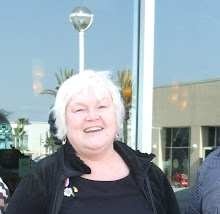I also suspect that different learning theories work on different learners at different times in their lives. If one learns a language as a toddler, then does not use that language, it becomes extinguished to a great degree. But learning that language again as an adult is easier than if the learner never had learned it at all.
I used to teach English to high school juniors. I was especially annoyed by the writing error of “a lot” being written without a space. So I invented the “A Lot Cheer” as a way in incorporate physical and musical intelligences into extinguishing this error. I taught the cheer at the beginning of the school year. Every time I caught a student making that error, he or she had to lead the class in the cheer. I had hoped that this punishment would be sufficient to make them aware of their mistakes and stop repeating them. During the semester, I began to notice self-editing where students would write a lot without the space (which my computer keeps correcting); later they would draw a line through it and spell it correctly. On the semester final, I asked them in multiple choice questions which words were misspelled. Almost all of the students identified that the “alot” was a misspelling, but about one fourth of them misspelled it in their essay test. I suspect that composing comes from one part of the brain, and editing comes from another, something that Behaviorism does not take into consideration.

Learning Theory and Educational Technology
ReplyDeleteI teach a skills course; therefore, I believe people learn by participating in an activity or problem-solving scenario. I believe learners must first acquire knowledge by reading, repetitive practice, and visual observation. Learners can transfer knowledge into meaningful, material by engaging in hands on activities that are useful and necessary for their social and mental growth.
I also support the behaviorist theory which stipulates that learning occurs whenever there is a change in behavior. I believe knowledge cannot be transferred until the learner demonstrates experiences that bring about a change in his or her behavior. Learners who interact with the world and others should be able to demonstrate skills they have acquired as a result of observing and interpreting actions of other people.
Driscoll, M.P. (2005). Psychology of learning for instruction (3rd ed.). Boston: Pearson Education, Inc.
Cynthia, as I stated in my Blog about the way people learn, I believe people learn best when a combination of input are available to aid with the learning. First, the learning happens as a process over time of seeing something happen or experiencing something happening and learning from the process or experience. Example: We tell little children not to touch the stove or iron because it is hot. They may stop because they recognize the word stop from another learning experience, but usually the lesson is not learned until that child actually touches the stove or iron. Now they have learned the word “hot” and when it is said, that emotion comes back into mind usually preventing the situation from being repeated with the same result—getting burned.
ReplyDeleteThanks for the post~~~Penny